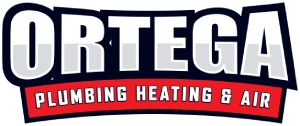What Sets Us Apart
Professionalism
Safety
Liability
Quality Work

Did you know that a single dripping faucet can waste more than 2,000 gallons of water a year? That is a small problem turning into a big bill, quietly. And that is how most plumbing trouble begins. It never starts with a flood or a burst pipe. It starts with the little things you barely notice until they start costing you money. A rattle in the wall. A slow drain. A water stain that was not there last month.
The trick is knowing which signs to take seriously and when to act. That is where this checklist comes in. Think of it as your quick guide to catching small problems before they turn into expensive ones.
Check for Hidden Leaks
Leaks are sneaky. They do not burst through walls or flood your floors right away. They hide. They sit quietly behind cabinets, under sinks, and inside walls, doing their damage one drip at a time. By the time you notice a musty smell, a soft spot on the floor, or paint starting to bubble, that “tiny” problem has already been at work for weeks.
And the truth is, even a small leak is expensive for the company. It wastes thousands of gallons of water a year, drives up your utility bill, and weakens your home from the inside out. That moisture also attracts mold and rot which are two things no homeowner wants to deal with, especially once they start spreading.
The tricky part? Most leaks are too well hidden to find on your own. That is when a reliable plumber earns their keep. They know how to track down the source, check the spots most people overlook, and stop the damage before it gets out of hand. A little detective work now can save you from tearing out drywall later.
Listen for Unusual Noises
Your plumbing system shouldn’t be noisy. When you start hearing strange sounds like banging, gurgling, or whistling, it’s your home’s way of saying something isn’t working as smoothly as it should. Each sound means something different, and paying attention early can save you from bigger problems later.
- Banging or knocking: This is often called “water hammer.” It happens when flowing water suddenly stops and slams against the closed valve. The force rattles your pipes and can eventually loosen joints or damage fittings. It’s usually caused by high water pressure or air trapped in the line, both of which need a plumber’s attention.
- Gurgling or bubbling: If your drains gurgle when water leaves the sink or toilet, that’s a sign of air trapped in the plumbing system. It could mean a partial blockage or a problem with your vent pipes. Ignoring it can lead to slow drains or even backups that require professional plumbing repair.
- Whistling or squealing: A high-pitched whine often points to a worn valve or a narrowing in the pipe. As water rushes through the restricted opening, it creates that sharp whistle. While it might seem minor, it’s a sign that pressure is building up in places it shouldn’t.
- Dripping or running water when everything’s off: That’s the sound of a hidden leak. It might come from a faucet, a toilet fill valve, or even a small line inside the wall. Over time, that steady drip can waste hundreds of gallons of water and quietly raise your bill.
When it comes to plumbing, silence is a good thing. If your system starts talking, it’s best to have a reliable plumber listen before the noise turns into a costly problem.
Keep an Eye on Water Pressure
Water pressure is like your plumbing’s personality. When it is balanced, everything behaves. When it is not, you will notice it right away. Too little, and your shower turns into a slow drizzle. Too much, and your pipes start to sound like they are throwing a fit.
- Low pressure: If your shower has lost its kick or your faucet is barely doing its job, something is slowing things down. It could be a layer of minerals building up inside the pipes, a small leak reducing flow, or aging plumbing that is starting to close in on itself. It may not seem serious, but it is often the first sign that your system is losing efficiency.
- High pressure: A strong blast of water might feel satisfying, but it is tough on your plumbing. Excess pressure pushes against joints and fittings until they loosen or wear out. If you hear knocking when you turn off the water, that is your pipes warning you that the pressure is too high.
Most homes do best between 40 and 60 psi. You can check it yourself with a small gauge that connects to an outdoor spigot, or you can ask a local plumber to test it during a maintenance visit. Keeping the pressure balanced protects your pipes, saves water, and prevents plumbing repairs that no one wants to deal with later.
Inspect Around Your Water Heater
Your water heater might not make much noise, but it is one of the hardest-working systems in your home. It runs every day, quietly keeping showers hot and dishes clean, until something small starts to go wrong. The good news is, water heaters rarely fail without warning. You just have to know where to look.
Start by checking for the small things that hint at bigger trouble:
- Moisture near the base: A little dampness around the tank is never “just condensation.” It often means a slow leak from a loose valve, a worn gasket, or early corrosion. Ignore it, and that drip can turn into water damage that spreads fast.
- Rust or discoloration: If you spot rust on the tank or notice rusty water coming from the tap, the inside of the heater is likely breaking down. Once corrosion sets in, it only moves in one direction: toward a full replacement.
- Unusual noises: A heater that rumbles, pops, or crackles is not haunted; it is full of sediment. That buildup traps heat, forces the unit to work overtime, and quietly steals years off its life.
- Inconsistent water temperature: When the water runs hot one minute and cold the next, the heating element or thermostat could be on its way out. Those parts are small, but replacing them early keeps the whole system healthy.
Checking these signs takes only a few minutes, but it can save you from a costly plumbing repair later. And if something looks off, a reliable plumber can flush the tank, tighten the fittings, and make sure everything is running safely. Catching the problem early is the difference between a quick fix and a cold shower.
Watch Your Water Bill
Your water bill does more than tell you how much you owe. It gives you clues about what is happening inside your plumbing. When the number starts creeping up without a clear reason, it is rarely just a higher rate. It often means water is escaping somewhere in the system.
A slow leak, a running toilet, or a dripping outdoor faucet can waste hundreds of gallons every month. The key is learning how to read the signs before the problem grows:
- Sudden spikes: A sharp jump from one month to the next usually means water is leaking around the clock. Toilets are often to blame. A worn flapper valve can send gallons of water into the bowl without making a sound.
- Gradual increases: When the cost rises a little each month, it might be a smaller leak or buildup restricting the flow of water. The system ends up working harder, using more water to do the same job.
- High usage when you are away: If your bill stays high even when you are not home, there is almost always a hidden leak somewhere in the plumbing.
Your water bill is like a monthly progress report for your home. If something looks unusual, it pays to have a reliable plumber take a closer look. Testing the lines, checking for leaks, and catching problems early can prevent the kind of damage that ruins walls and floors. A quick inspection today costs far less than a full repair later.
Pay Attention to Drain Performance
Drains are easy to overlook until they stop doing their job. Slow water movement, standing water, or unpleasant smells often mean that buildup is forming somewhere in the line. What begins as a simple clog can turn into a full blockage that affects your entire plumbing system.
- Slow drainage: When water lingers in the sink or tub, it usually means grease, soap scum, or hair is narrowing the pipe. Ignoring it allows the buildup to harden, which can eventually require professional plumbing repair to remove.
- Gurgling sounds: If you hear bubbling when water drains, that is air trapped behind an obstruction. This can signal a developing clog or an issue with the venting system.
- Unpleasant odors: A foul smell rising from a drain is a clear sign of trapped waste or bacterial growth inside the line. Once odor appears, it means the buildup has been sitting there for some time.
Routine cleaning helps prevent all three issues. If multiple drains in the home are slowing down at once, it could mean the main line needs professional attention. A local plumber can inspect the line, clean it properly, and restore full flow before the problem spreads.
Spot Problems Early? Do Not Wait Until They Cost You More
Plumbing problems are a lot like bad habits and the longer you ignore them, the more they cost you. That small drip, that slow drain, that weird noise in the pipes? They are not waiting for a better day to fix themselves. They are getting worse quietly.
That is why a quick visit from Ortega Plumbing Heating & Air is worth it. We catch the small stuff before it turns into something you cannot ignore.
So if your plumbing has been acting suspicious lately, do not wait for it to prove you right. Call Ortega Plumbing Heating & Air today and let a reliable plumber keep those small problems from becoming tomorrow’s disaster.
Angela and Billy Ortega didn’t plan to start a residential HVAC company. They were already running a busy construction and plumbing business, handling big commercial projects across the area
Recent Post
Need Emergency Plumbing?
Call (505) 522-2050 now!
Reach out to Ortega Plumbing Heating & Air for fast, reliable emergency plumbing services.
Schedule Service
"*" indicates required fields


